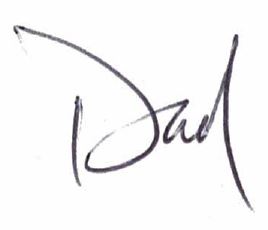It’s not practicing to learn, but learning to practice
 Karate was a big part of my life when I was in university. I didn’t begin this martial art until I was in my first year. I practiced two or three times a week often for two to three hours each time and attended numerous special trainings and other regional workshops. Although I never broke any bones, I survived with knuckles covered with calluses, bruised arms and even once sported a black eye (I never failed to deflect a punch after that!). When I graduated university, I attained the rank of Shodan, a first dan black belt. During the simple and humble ceremony, my sensei presented the black belt which had my name hand embroidered from Japan and said, “Now you can begin to practice.”
Karate was a big part of my life when I was in university. I didn’t begin this martial art until I was in my first year. I practiced two or three times a week often for two to three hours each time and attended numerous special trainings and other regional workshops. Although I never broke any bones, I survived with knuckles covered with calluses, bruised arms and even once sported a black eye (I never failed to deflect a punch after that!). When I graduated university, I attained the rank of Shodan, a first dan black belt. During the simple and humble ceremony, my sensei presented the black belt which had my name hand embroidered from Japan and said, “Now you can begin to practice.”
Apparently, all my work up to that point, was learning the basics sufficiently well enough to begin practicing the martial art. My journey has only begun and still years away from my second dan. It was truly a humbling moment. Having had the benefit of age now to ponder this concept, my sensei was right!
![]() Practice doesn’t necessarily make perfect; it makes rote. And many things can’t be learned that way. Worst, if one is practicing incorrectly, it’s even more difficult to unlearn it later.
Practice doesn’t necessarily make perfect; it makes rote. And many things can’t be learned that way. Worst, if one is practicing incorrectly, it’s even more difficult to unlearn it later.
My daughter has had a contorted relationship with her cello discipline as she often loathes practicing. Add to this, she is actively discouraged by her mother, so half the time, she simply doesn’t touch her instrument. And as such, she took over 4 years to finish Book 1 of the Suzuki Cello program. While cello is not a competitive sport, she has taken longer than usual; many of her peers have moved on to different groups. But she likes it well enough to putter at her own pace. She was extremely happy to finally move on to Book 2 but felt dejected at the prospect of spending another 4 years on this book. Neither her instructor nor I said anything. To her own surprise, she finished this far more complicated Book 2 in one year. And during the pandemic year where most of her lessons and play were through virtual sessions! When she went to Book 3, she asked me why it took such a short time to finish a more technical book. I responded with the same phrase my sensei had said to me years ago, “Up until Book 2, you were just learning the basics. It is only now you are beginning to practice.” Huh?
My daughter soon realized this deeper meaning and understood why her cello instructor tells her never to stop playing pieces from Book 1 even if she is in Book 10! She’s beginning to realize that the upfront work is necessary in order for downstream effort to be efficient or even possible! She’s beginning to realize why they are taught to memorize the multiplication table. She’s also beginning to understand that learning to learn is not just a silly play on words but a lesson unto itself. Practice doesn’t necessarily make perfect; it makes rote. And many things can’t be learned that way. Worst, if one is practicing incorrectly, it’s even more difficult to unlearn it later.
Every failure is just another stepping stone that paves the way to success. And every stone should neither be diminished nor loathed, but welcomed and valued. The bigger the misstep, the more memorable the lesson and the firmer the more surefooted the next step becomes. As a parent, I can put guardrails along her road. Ultimately, she’ll stop being the passenger, and become the driver. One day’s she’ll be the mechanic, too! Sometimes, it’s a bit of a slog, but may her journey be full of scrapes, calluses and even the occasional bruise.



